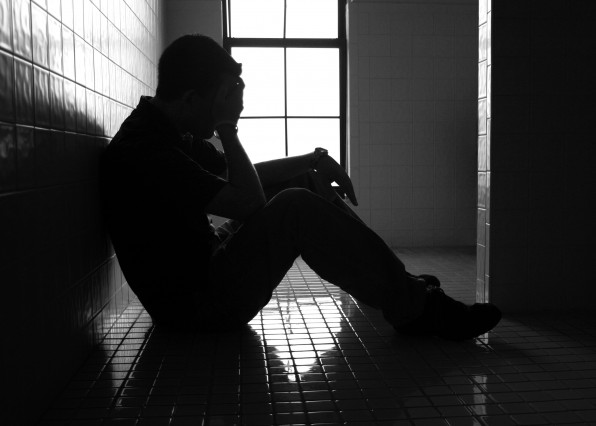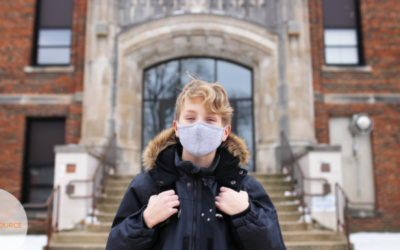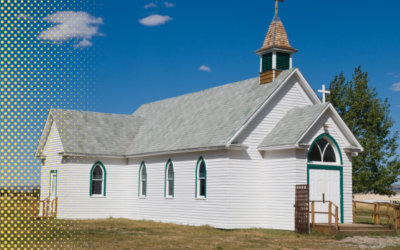Download a PDF of Apologia: Why Doesn’t God Prevent Sin?
Introduction
Our world is broken. Sin has broken everything that exists and has ever existed since Adam and Eve’s fall. It destroys all relationships between God, creation and humankind. Sin brings death and destruction, and it separates us from God, from nature and from each other.
So why didn’t God prevent sin? Why doesn’t He prevent it now?
This is a question that people, especially Christians, wrestle with at some point in their lives. Beginning with God’s Word, let’s address this question.
Scripture Connect
Genesis 1:26-31
God created humans to be in relationship with Him and to be stewards over His creation. We were created in His image, and God deemed us good. We were in perfect harmony with Him and His creation.
Genesis 3:1-7
Satan tempted Adam and Eve, and they disobeyed God’s commandment. With this first sin, mankind and creation fell from God’s perfection and His intended plan for us.
Romans 5:17-19 & 6:23
Scripture makes it clear that through the fall into sin, we are all sinners condemned to death and in need of God’s grace. He saves us from our sin and makes us righteous through faith in Jesus Christ.
Hebrews 9:14, 28
Christ’s death has paid the penalty of our sin, and His resurrection gives us the sure hope of eternal life with Him. God has corrected our willful rebellion through His Son’s willing sacrifice, and thus, He restores us to relationship with Him.
1 John 1:8-2:2
We know that we are sinful and that we deserve punishment. Yet, we repent of our sins, confident that God will forgive us because of Christ’s sacrifice.
Doctrinal Quotation
“It is evident from Scripture that God created humanity with the ability to sin. Being omniscient, he surely would have anticipated our use of this ability. It might even be said that, since he did not prevent the serpent’s deception, he allowed the fall to happen. None of this, however, makes God responsible for causing the fall into sin. Not only does Scripture make clear that God Himself is wholly without sin; it also records his utter hatred of sin (Deuteronomy 32:4; Psalm 5:4-6; Zechariah 8:17). In his long-suffering patience, the Lord may permit sin; but he neither causes nor condones it.” Called to Believe, Teach, and Confess
“Saint Augustine says: ‘God is so good that He would not allow evil to happen if He did not intend to make something better of it… Not that God loves or likes evil (otherwise He would not create good out of it but would allow evil to remain as it is and to increase), but that, to spite the evil and the devil, He more richly demonstrates His goodness, to His praise and honor.'” – What Luther Says
“Diligently learn the doctrine (locum) of original sin, and do not argue about why God permitted it. This is the question which inquisitive thinkers (ingenia curiosa) are in the habit of casting up. Rather ask how we may be saved and freed from the evil.” What Luther Says
Application
Although we sometimes wish God had made us in a way that we would never have fallen into sin, God did not create us that way according to His purpose. God’s wisdom is beyond our comprehension, and we will never be able to fully understand His will and the ways in which He works.
We do know that God created mankind as marvelous creatures to be in relationship with Him. He gave us free will–the ability to reason and act un-coerced according to our own desires. We chose to rebel against God, and therefore, have fallen into sin. Sin and evil permeate our world and our daily lives. Even the free will that we had at creation has been corrupted by sin, leaving us unable to believe, to repent or to obey Him without the Holy Spirit’s help.
The question now becomes how are we as Christians, with the help of the Holy Spirit, going to respond to the reality of sin.
Will we repent of our sins and turn to God’s forgiveness and grace through Jesus Christ?
Will we strive to do His will and demonstrate His mercy and love in a broken and hurting world?
Will we tell others of the salvation and restoration offered in Jesus’ death and resurrection?
Conclusion
We pray that God would continue to work good in the world for His purpose and for His glory despite sin and evil. We pray that He would forgive us of our sins and make us holy through the work of His Holy Spirit in our lives. We pray that He would use us, His Church, to be witnesses to those around us, both in our words and actions. Amen.
First published on youthESource.com on April 12, 2013.









0 Comments